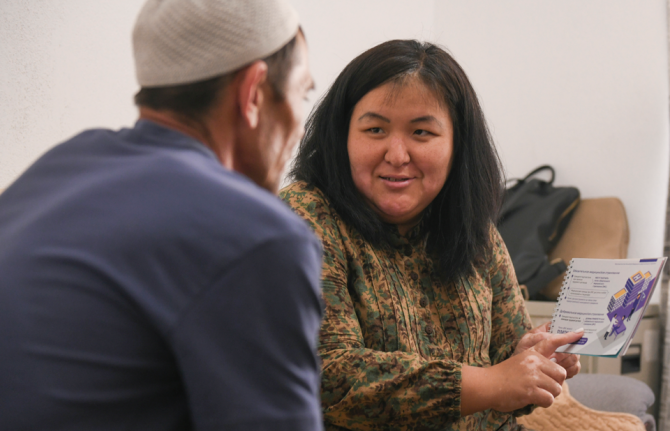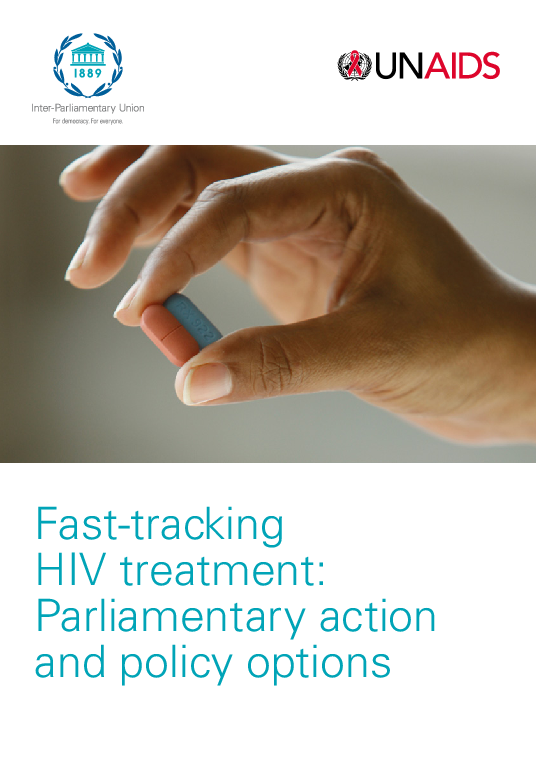
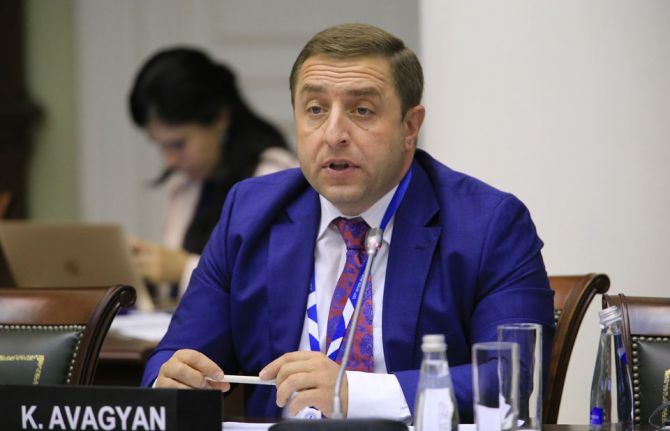
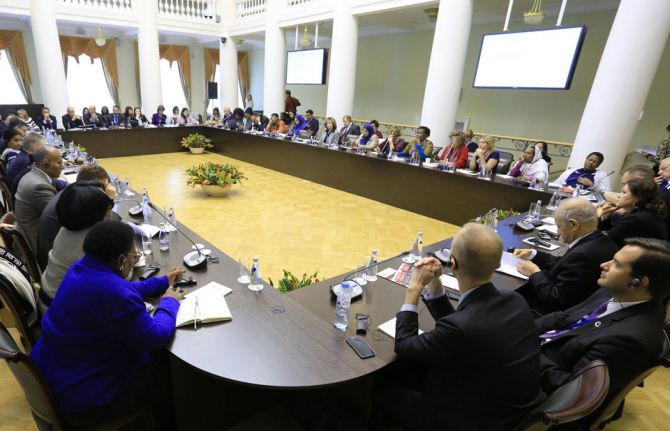

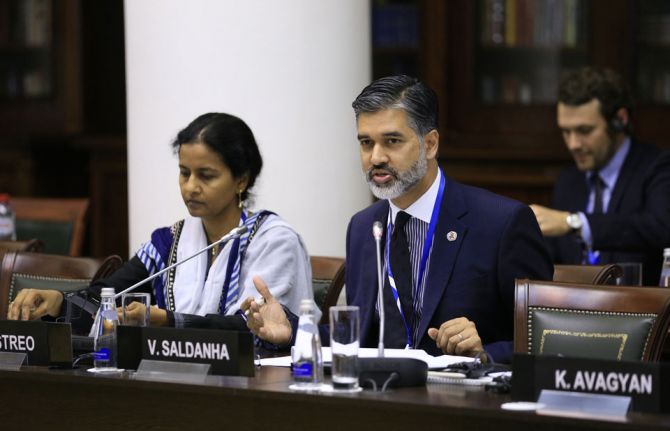
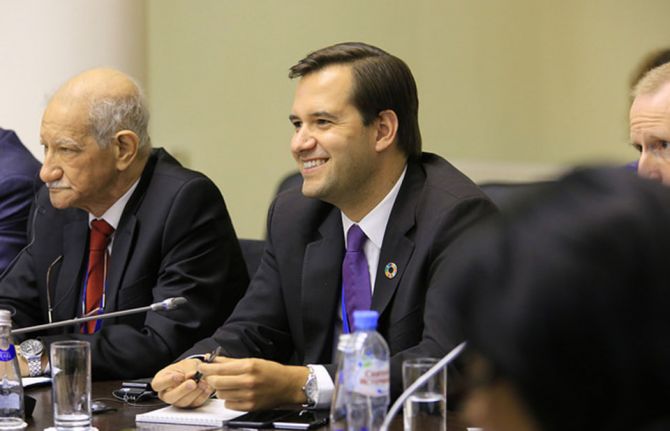
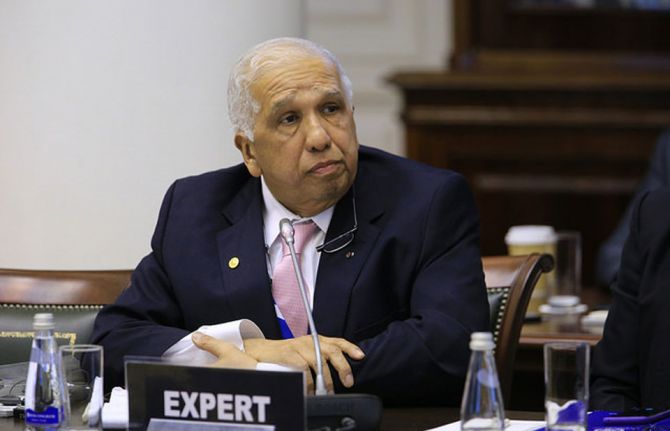
Update
Parliamentarians call for firm action towards ending the AIDS epidemic
18 October 2017
18 October 2017 18 October 2017Members of parliament from countries worldwide called for firm action towards ending the global AIDS epidemic on 15 October in Saint Petersburg, Russian Federation. The members of parliament have gathered in Saint Petersburg for the 137th Assembly of the International Parliamentary Union, which is being held from 14 to 19 October.
The discussion, during a session entitled Ending AIDS through Sexual and Reproductive Health: the Need for Urgent Parliamentary Action, was focused on the rights of key populations, access to treatment, gender equality, addressing cultural barriers and the need for greater investment in the response to HIV.
Members of parliament debated the issues of legal support to HIV prevention and harm reduction initiatives. They put their voices behind creating an enabling legal environment for responding to the epidemic, but stressed the need to tailor the response by focusing on specific issues that vary from country to country and region to region.
Quotes
“We need to stop talking and start acting.”
“Members of parliament are the interface between the people and government and we need local choices to reach the 90–90–90 targets on HV and the Sustainable Development Goals targets on health. It is the lack of political will that is holding us back.”
“The recent lessons from our experience only strengthen our view that punitive measures can only be counterproductive. There must be an open, dialogue-based approach in working with communities and a focus on human rights.”
"Saint Petersburg City AIDS Center is providing a full range of quality services. Its staff are highly professional and show a strong commitment to giving not only the required medical assistance but also guidance, advice and support to their patients, the community of people living with HIV and key populations".
Region/country
Related
 Government ensures continuity of treatment in Malawi
Government ensures continuity of treatment in Malawi

10 February 2025

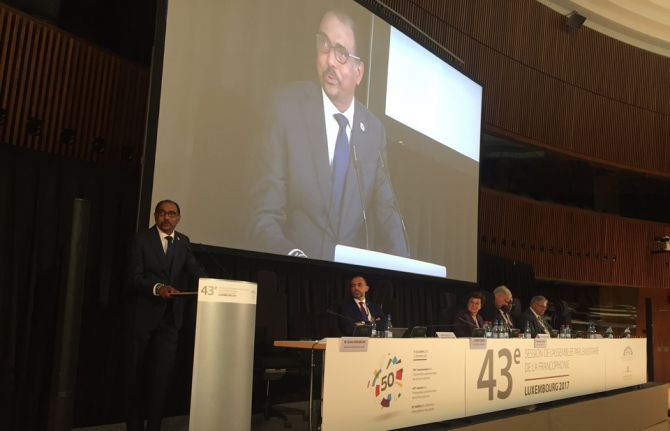
Feature Story
UNAIDS Executive Director addresses Parliamentary Assembly of the Francophonie
11 July 2017
11 July 2017 11 July 2017The UNAIDS Executive Director, Michel Sidibé, has addressed the 43rd Session of the Parliamentary Assembly of the Francophonie on the centrality of the Francophonie in making progress towards the end of AIDS.
The assembly, which brings Francophone parliamentarians together annually to exchange views, learn about good practices and take a position on cross-cutting issues affecting the French-speaking world, met on 10 July in Luxembourg.
Nearly 600 members of the Parliamentary Assembly of the Francophonie and more than 20 presidents of parliamentary assemblies gathered for the event, which was held under the theme of “Linguistic diversity, cultural diversity, identities”.
Quotes
“The Francophonie, more than a linguistic tool, constitutes a political and scientific space, built around common values.”
“It seems to me to be essential to insist on the cultural dimension governing human relations, both within a single society and in relations between peoples.”
“I welcome the allocation of 1% of the Grand Duchy’s budget for development cooperation. Diversity is to be cherished, preserved and promoted.”
“We, the Francophonie, constitute so many actors of massive movement for peace and stability, for the eradication of discrimination and violence against women, for full respect for their rights and economic empowerment, for access to quality education and training for all, to create decent and sustainable jobs, especially for young people, for shared growth, for sustainable and responsible development and for the full development of linguistic and cultural diversity.”
“Our identity is based on the francophone values we are committed to defend.”
Region/country
Related
 Government ensures continuity of treatment in Malawi
Government ensures continuity of treatment in Malawi

10 February 2025

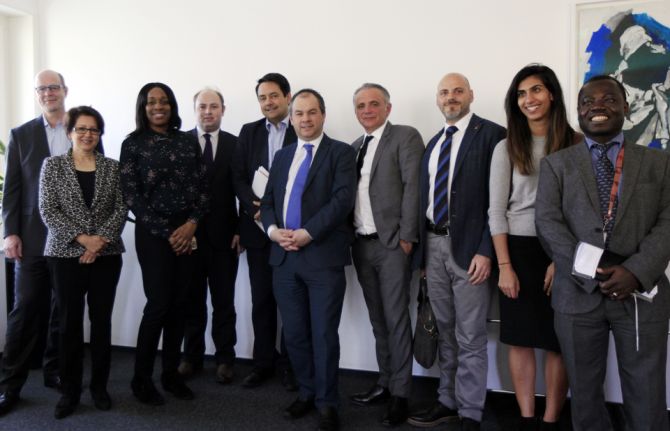
Feature Story
British parliamentarians visit UNAIDS
31 March 2017
31 March 2017 31 March 2017UNAIDS welcomed a group of prominent British parliamentarians from the cross-party International Development Committee to discuss the role of lawmakers in ending AIDS and contributing to global health. The parliamentarians were Labour Member of Parliament and Shadow Secretary of State for International Development Kate Osamor, Stephen Twigg, Labour Member of Parliament and Chair of the International Development Committee, Conservative Members of Parliament David Mackintosh and Paul Scully, and Baroness Sheehan, member of the House of Lords and the Liberal Democrat spokesperson for international development.
Deputy Executive Director Luiz Loures chaired an informal discussion that began with the Members of Parliament sharing their own experiences of visiting AIDS programmes in Africa and Asia. They spoke of their acute awareness of the complicated nature of the AIDS response, and Mr Twigg highlighted the role that discriminatory laws played in creating barriers to services. Mr Loures noted that one of the biggest challenges to the AIDS response was the risk of complacency. Baroness Sheehan expressed her concern about the increased vulnerability of girls and young women. The discussion explored the role of civil society and the shrinking space for civil society and Mr Scully noted the increasing need to mobilize domestic resources.
Mr Loures highlighted the critical role of parliamentarians in ensuring that health and development international assistance is maintained and scaled up. Mr Mackintosh highlighted the need for increased efficiency and analysis on returns on investment to enable parliamentarians to advocate for sustained and increased funding.
Ms Osamor thanked Senior Adviser David Chipanta for sharing his personal story of living with HIV and the life-changing impact that access to treatment has had on his life.
The visit was organized by STOPAIDS, STOP AIDS Alliance, Results UK and Malaria No More. The United Kingdom is the fourth largest donor to UNAIDS.
Region/country

Debrief
Concrete actions needed to end the AIDS epidemic as a public health threat by 2030
10 October 2016
10 October 2016 10 October 2016Parliamentarians should collaborate worldwide to end the AIDS epidemic, according to the participants of the Ending the AIDS Epidemic as a Public Health Threat by 2030 workshop, which took place during the opening day of the World Health Summit in Berlin, Germany.
The workshop was organized by UNAIDS and the German Healthcare Partnership to bring together legislators, civil society, the private sector and academic leaders to explore ways to reach the Fast-Track Targets on ending the AIDS epidemic by innovating, accelerating and focusing their HIV programmes and policies.
In addition to political leadership, the session identified other essential factors necessary to meet the political targets agreed by United Nations Member States at the 2016 General Assembly High-Level Meeting on Ending AIDS and reviewed the latest progress in HIV diagnostics and treatment, investment and social engagement.
The participants also discussed how countries, cities and communities should prioritize their efforts to achieve the end of AIDS, what policy frameworks and innovative and alternative investment sources can be developed and utilized and how health systems can be strengthened to end AIDS and meet the Sustainable Development Goals without leaving anyone behind.
Participants
A broad spectrum of private sector, community, scientific and political representatives participated in the event, including UNAIDS Deputy Executive Director Luiz Loures.
Key messages
The participants called for a new network of like-minded politicians from across the political spectrum to take action on health and HIV. They emphasized the need to reflect local realities while making best use of scientific knowledge and tools for preventing new HIV infections.
The participants stressed the importance of keeping young women in school in order to avoid them acquiring HIV infection from older men and noted that key populations—including prisoners—must have unfettered access to HIV prevention tools.
The participants called on governments to actively involve the private sector in the response to HIV and stressed the need to empower UNAIDS as a coordinator and communicator. They warned that without sufficient investment there would be a resurgent and resistant HIV epidemic.
The participants noted the necessity of building greater trust in communities and exploring incentives for people to adhere to treatment and that newer technologies, such as self-testing, community-based testing and pre-exposure prophylaxis, were showing great promise.
They also noted that it is necessary to improve infrastructure and strengthen systems of health in order to ensure that people in need are supported and retained.
Quotes
“HIV IS A TEST. WE HAVE THE TOOLS, BUT WE DON’T REACH ENOUGH PEOPLE. IF WE DO NOT SUCCEED, IT QUESTIONS WHETHER WE WILL FAIL WITH OTHER DISEASES.”
“AIDS IS NOT OVER. WE LIVE IN A PARADOX, BETWEEN PROGRESS IN TREATMENT AND HAVING THE TOOLS, BUT AT THE SAME TIME SEEING THE RE-EMERGENCE OF NEW INFECTIONS. WE LOOK TO EVERYBODY INVOLVED, TO HELP FIND THE WAY TO RESOLVE THESE CHALLENGES.”
“WE CAN NEVER SEPARATE HUMAN RIGHTS FROM OTHER ISSUES. IT IS INTEGRAL TO PUBLIC HEALTH.”
“IT IS TIME FOR CONCRETE ACTION. WE HAVE BEEN TALKING FOR A LONG TIME. COMMUNITIES ARE WAITING FOR ACTION, IF WE REALLY WANT TO END AIDS AS A PUBLIC HEALTH THREAT BY 2030.”
“WE HAVE TO EXPLORE HOW TO RE-ENGINEER THE HEALTH SYSTEM AND ASSIGN FUNDING AGAINST THE GOALS, INCLUDING THE 90–90–90 TARGETS. WE SHOULD FOCUS ON THE QUALITY OF LIFE OUTCOMES.”
“WE MUST EMPHASIZE PREVENTION AND RESPONSIBILITY FOR PROTECTION OF SEXUAL PARTNERS.”
“IF THE WORLD DOES NOT MAKE THE INVESTMENT OVER THE NEXT DECADE, WE WILL HAVE A RESURGENT EPIDEMIC AND A RESISTANT EPIDEMIC.”
“OUR BELIEF HAS ALWAYS BEEN THAT, EVEN IF WE MAY NOT BE INFECTED BY HIV, WE ARE AFFECTED BY HIV.”

Update
Parliamentarians in Djibouti commit to a people-centred approach to Fast-Track the end of the AIDS epidemic
14 December 2015
14 December 2015 14 December 2015The Parliament of Djibouti has adopted a new plan to Fast-Track the end of the AIDS epidemic and increase protection for people living with HIV and key populations.
The new strategy was formulated during a workshop attended by deputies as part of Djibouti’s national week of action against HIV. Opened by the Minister of Health and the Speaker of the National Assembly, the event brought parliamentarians together with people living with HIV and representatives of civil society organizations, the national AIDS, tuberculosis and malaria council and the United Nations. The workshop was an opportunity for parliamentarians to hear directly from people living with HIV about the social and legal challenges they face, including stigma and discrimination.
The participants welcomed recent progress in the response to HIV in Djibouti, especially the decrease in HIV prevalence from 3% in 2000 to 1.6% at the end of 2014 and legislation introduced to strengthen the protection of people living with HIV and other vulnerable groups. The workshop also reviewed critical challenges to the HIV response, including the limited uptake of services to prevent mother-to-child transmission of HIV and pervasive stigma, discrimination and other human rights violations towards people living with HIV and key populations.
In drawing up the new plan, parliamentarians said better coordination across government was required to implement the non-discrimination provisions of existing legislation. They also called for a public meeting at parliament with the National Network of People Living with HIV to raise awareness about stigma and discrimination.
Quotes
“This workshop has been a unique opportunity for us to bring the realities of our lives and challenges to the representatives of the people of Djibouti. Now we want them to take action to help us fight stigma and discrimination and to ensure access to services to improve the well-being of all people living with HIV.”
“As Members of Parliament, our role is to engage people living with HIV, health-care workers and other stakeholders to support the response to HIV and contribute to the end of HIV-related stigma and discrimination.”
“Parliamentarians can provide an important boost to efforts to Fast-Track the HIV response. UNAIDS will continue working with them to translate their commitment into concrete actions to accelerate a rights-based and people-centred response to HIV.”
Region/country
Related
 Government ensures continuity of treatment in Malawi
Government ensures continuity of treatment in Malawi

10 February 2025

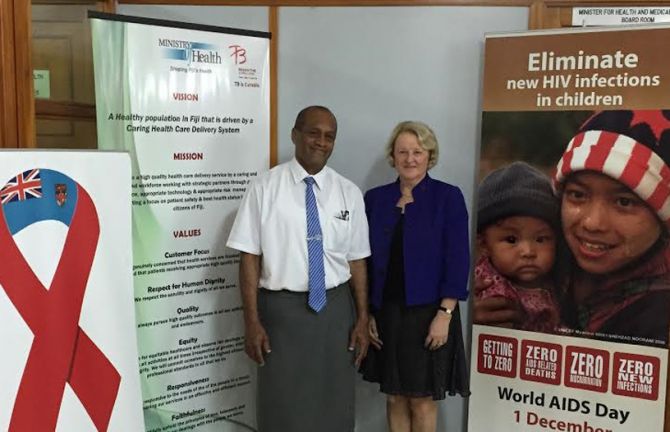
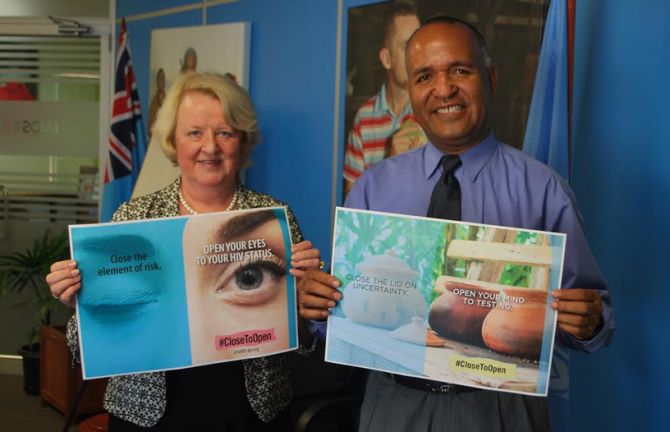
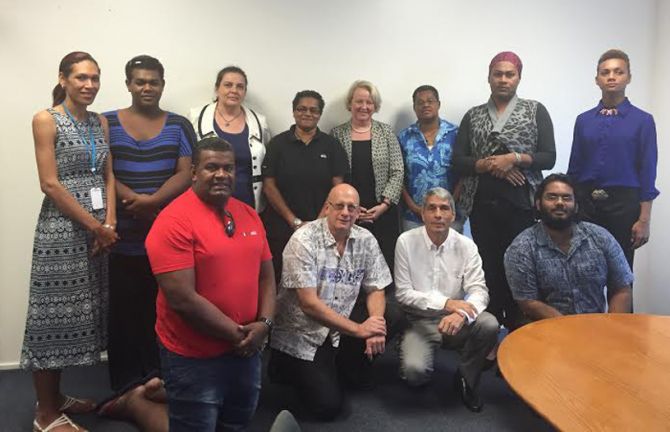
Feature Story
Fiji’s AIDS response provides lessons for broader sustainable development agenda
07 December 2015
07 December 2015 07 December 2015Fiji has a low-level AIDS epidemic, with fewer than 1000 people estimated to be living with HIV in 2014. A combination of engaged leadership, integrated multisectoral action, evidence-informed and rights-based approaches and people-centred partnerships are behind the country’s success in the response to HIV. The Fijian strategy provides important lessons to help ensure greater progress across broader sustainable development issues and goals.
“Fiji’s AIDS response has much to celebrate—and much to share,” said UNAIDS Deputy Executive Director Jan Beagle during her visit to Fiji from 30 November to 3 December. “There has been strong recognition that the most effective results can only be achieved through partnership, across sectors, through strong leadership and with community at the centre. By taking AIDS out of isolation, the impact can go far beyond the AIDS response.”
Partnership across government, communities, the health and education sectors and the United Nations system has led to focused prevention and treatment strategies and action. Responding to evidence of potential risk for key populations, Fiji has implemented a number of key policy and legal reforms, including decriminalizing sex between men and removing HIV-related travel restrictions and laws criminalizing HIV transmission or exposure.
Leaders in the country have consistently championed the HIV agenda, including through sustained activities to raise awareness in schools and among faith communities and the private sector.
In a meeting with Ms Beagle, President Jioji Konrote of Fiji expressed his personal commitment to continuing action on AIDS. Minister of Health and Medical Services Jone Usamate confirmed the country’s commitment to implementing the UNAIDS Fast-Track approach to increase action and front-load investments on HIV over the next five years and to end new HIV infections among children within the next two years.
“We need to continue the solid work in Fiji and use the experience and opportunity to strengthen efforts on climate change, noncommunicable diseases and gender-based violence,” he said, underlining the alignment of Fiji’s new National AIDS Plan with the UNAIDS strategy towards ending the AIDS epidemic by 2030.
Partners in the Fijian AIDS response agree that further scale-up must be continued to ensure sustained progress in the country and across the Pacific region.
“We cannot afford complacency on HIV and we need to keep it on the agenda, because we know that progress here is also having benefits across health, development, gender and rights issues,” said Speaker of the Parliament Jiko Fatafehi Luveni, a prominent advocate for HIV and women’s issues.
The newly elected Secretary of the Fiji Council of Churches, Simione Tugi, underlined the important role of faith-based communities and organizations across multiple religions to reach people in greatest need.
“Established networks, particularly within the faith community, help reach people even in hard to reach areas,” Mr Tugi said. “We will continue to be advocates for HIV through these structures so that we leave no one behind.”
Active involvement of people living with and affected by HIV is heralded by all partners as one of the key enablers for progress in the AIDS response.
Jokapeci Tuberi Cati of FJN+, Fiji’s network of people living with HIV, said, “We have made our voices heard and have been listened to, but we need ongoing focus, commitment and resources allocated to HIV. And we need to keep fighting stigma and discrimination for a more equal Fiji and safer society for all.”
Region/country
Related

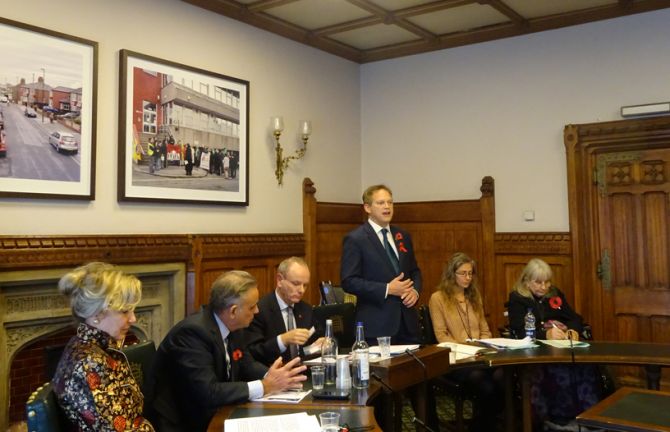
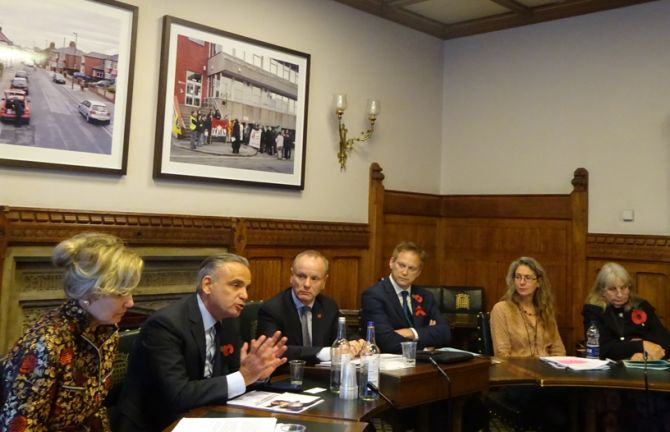
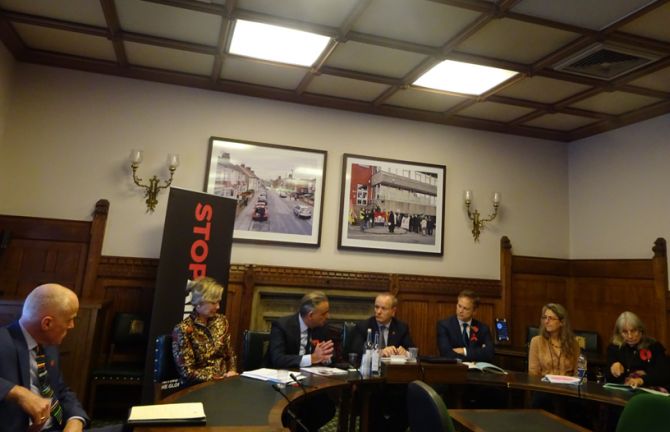
Update
The end of AIDS is a crucial step in improving the lives of women and girls
04 November 2015
04 November 2015 04 November 2015Ending the AIDS epidemic is critical to making life better for women and girls and meeting their health and development needs, concluded a United Kingdom parliamentary panel that met in London.
The event, which took place on 4 November, was convened by Mike Freer, Chair of the All-Party Parliamentary Group on HIV & AIDS, and was attended by Grant Shapps, Minister of State for International Development. He was joined on the panel by Deborah Birx, United States Global AIDS Coordinator, the Athena Network’s Luisa Orza and UNAIDS Deputy Executive Director Luiz Loures. Their audience included members of parliament, senior civil servants and representatives of community-based organizations.
In a wide-ranging discussion, the participants stressed that placing women and girls at the heart of global efforts to end the AIDS epidemic chimed well with the United Kingdom’s strong leadership in supporting adolescent girls’ well-being, empowerment and sexual and reproductive health and rights. In addition, it was asserted that responding to AIDS was important for the achievement of the Sustainable Development Goals.
The participants stressed the importance of Fast-Tracking the AIDS response in the next five years. It was highlighted that by investing during this fragile five-year window, the end of the AIDS epidemic as a public health threat can be achieved, which will also leverage broader outcomes for young women and girls. However, the task cannot be left to donors alone. It was agreed that shared responsibility in financing by countries that can afford it and innovation is critical to ensure continued results.
Mr Loures noted that UNAIDS’ political advocacy, country presence and extensive work with civil society could enhance partnerships with the United Kingdom, the United States of America and the Global Fund to Fight AIDS, Tuberculosis and Malaria, ensuring that more women and girls are reached with HIV-related programmes.
Such programmes are crucial given that AIDS-related illnesses are still the main cause of death among adolescents in Africa. Every year around 380 000 young women (between 15 and 24 years old) are newly infected with HIV. In sub-Saharan Africa, adolescent girls account for 74% of all new HIV infections among adolescents.
The role that violence can play in heightening the vulnerability of women and girls to HIV was also discussed. In 2012, it was reported that around 120 million girls worldwide had experienced rape or other forced sexual acts and a South African study found that young women who had suffered violence at the hands of their partners were 50% more likely to have acquired HIV. Women are also often subjected to sexual violence in conflict situations.
Despite these challenges, the panel was optimistic, stating that with significant programmes and commitment, the rights of women and girls in all spheres could be significantly enhanced, allowing them to live in safety with the knowledge and freedom to make their own choices about how to protect themselves from HIV.
Quotes
“Girls and women must be offered the tools to protect themselves. We will not reach the goals we agreed in New York to end AIDS by 2030 if we don’t act urgently for women and girls. The United Kingdom is committed to improving rights of women and girls and to ending the AIDS epidemic by 2030.”
“I believe we can chart a different future for women and girls. Let us join hands together and move faster to achieve an AIDS-free generation and the end of AIDS by 2030. This is the only way we can do it.”
“Ending AIDS is more than crucial for women and girls.”
“The United Kingdom has had a key role historically and was the very first country to make clear the connection between development and human rights. If we invest well in the next five years, we will pay less in terms of resources but also in terms of lives saved and together we can achieve the end of the AIDS epidemic.”
Partners

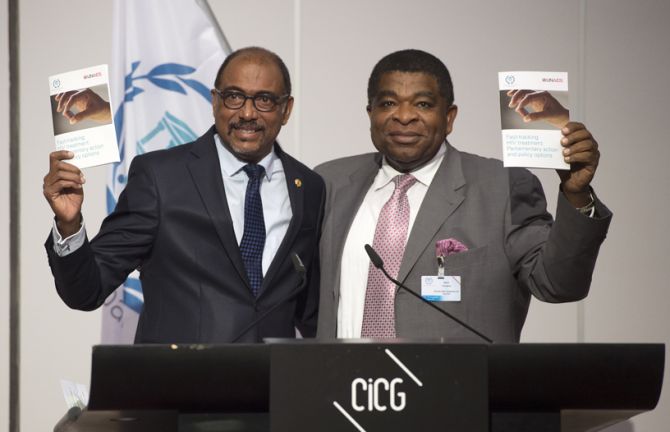
Update
New report on HIV treatment launched for parliamentarians
21 October 2015
21 October 2015 21 October 2015UNAIDS and the Inter-Parliamentary Union (IPU) have published a best practice report to assist parliamentarians around the world frame policy and improve access to HIV treatment services.
Launching Fast-Tracking HIV treatment: Parliamentary action and policy options, the Executive Director of UNAIDS, Michel Sidibé, and the Secretary General of the IPU, Martin Chungong, described parliamentarians as having a pivotal role in expanding access to HIV treatment and helping UNAIDS reach its Fast-Track treatment targets.
They noted that expanding treatment involves respecting, protecting and promoting the rights of people most affected by HIV to ensure that everyone in need can access life-saving medicines.
Quotes
"Parliamentarians play a key role in the AIDS response and increasing access to treatment. With their leadership, we can integrate science and policy to advance human rights and end the AIDS epidemic by 2030."
"Where parliamentarians are effectively engaged in the AIDS response, they can provide the critical leadership for a new vision for health – health services that leave no one behind and make treatment a reality for all."
Related
Documents
Fast-tracking HIV treatment: Parliamentary action and policy options
21 October 2015
HIV treatment is a cornerstone of the AIDS response, helping to prevent AIDS-related deaths and avert new infections. It also helps people living with HIV to live close-to-normal lifespans, thereby reducing HIV-related stigma. Evidence shows that HIV treatment, administered ideally as soon as possible after diagnosis, not only slows disease progression but also prevents onward HIV transmission. Moreover, the right to the highest attainable standard of health necessitates access to treatment and other medicines to ensure that people living with HIV can have long and productive lives.







